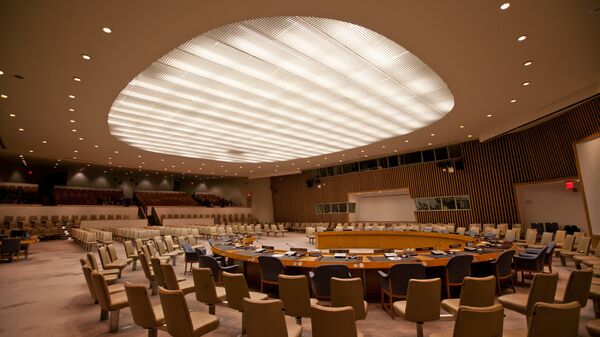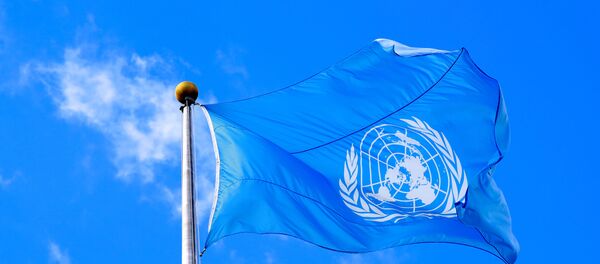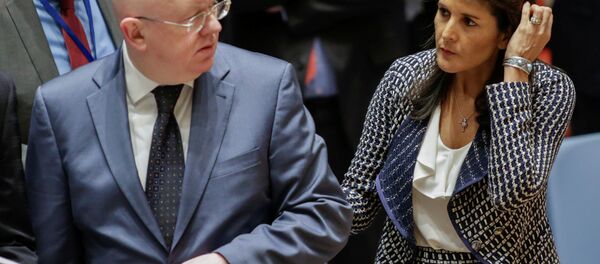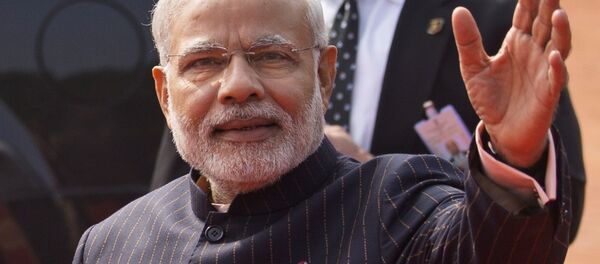Prime Minister Narendra Modi, during his address at the 75th UN General Assembly made a forceful plea for India's claim to the UNSC, saying: "Today, the people of India are concerned about whether this reform process will ever reach its logical conclusion".
"For how long will India be kept out of the decision-making structures of the United Nation?", Modi asked through his virtual address.
Sputnik has spoken to Ambassador Asoke Mukerji, former Indian Permanent Representative to the United Nations, to learn why Prime Minister Modi decided to take a more assertive approach to the stalled UN reforms and the country's claim to a coveted position on the global decision-making body.
Sputnik: Prime Minister Modi made a very forthcoming pitch for India's membership on the UN Security Council during this year's General Assembly. Do you think Modi was in a combative mood to push for what he sees as India's rightful place in the world organisation?
Ambassador Asoke Mukerji: I think that Prime Minister Modi was being realistic and constructive in stating that India needed to be included in the decision-making structure of the UN Security Council.
Due to India's democratic credentials, demographic advantages, and developmental experience, its (the country’s) presence in the Security Council on an equal basis as the five permanent members will enhance the effectiveness of the Council and enable the implementation of its decisions on the ground.
Sputnik: Why do you think the permanent five do not want reforms in the UN vis-a-vis expansion of the Security Council to give representation to Africa, which is not represented or to Asia, which is inadequately represented?
Ambassador Asoke Mukerji: The position of the five permanent members has been ambivalent on giving representation to Africa, or adequate representation to Asia. Even Latin America does not have a permanent member in the current structure of the Security Council.
The main reason why the five permanent members do not want to give additional permanent seats with equal rights to new members from Africa, Asia, and Latin America is because they do not want other members to have veto power. This means that all five permanent members do not want to change the status quo in the 1945 UN Charter.
Sputnik: Though talks of UN reforms began in 1945, perhaps it has never been taken to any logical conclusion even in the latest one in 2015 when India was hoping to make it. Why has India failed to convince the members?
Ambassador Asoke Mukerji: Since 1979, this attempt (at reforming the UN) has been blocked by tactics of the five permanent members. This issue was hostage to the politics of the Cold War in the General Assembly until 1992. Since 1992, the UN General Assembly (UNGA) has not been allowed to start negotiations on UN Security Council (UNSC). It was only at the 60th UN Summit in 2005 that the General Assembly was given the unanimous mandate for early reforms of the Security Council by world leaders (including those from all five permanent members).
Implementing this mandate has had incremental success. India has been part of the pro-reform group of member states represented by the L/69 group (group of developing countries from Africa, Latin America, the Caribbean, Asia, and the Pacific) that catalysed the unanimous UN General Assembly decisions in 2007 and 2008 to create the platform of Inter-Governmental Negotiations, and to the five-point agenda for these Negotiations, which includes the question of veto.
In September 2015, India joined other pro-reform countries in the UN General Assembly to ensure that the President of the UN General Assembly, representing the Africa group, was successful in tabling the written positions of 120 UN member states for taking the UN Security Council reform process forward by drafting the text of a UN General Assembly resolution.
India's position for equitable representation in the UN Security Council continues to be supported by a large majority of member states in the UN General Assembly.
The ineffectiveness of the UN Security Council in responding to the myriad of challenges thrown up by the COVID-19 pandemic has galvanised sentiment in the UN General Assembly to conclude the negotiations by adopting a resolution in the General Assembly to amend the UN Charter and reform the Security Council.
Sputnik: During his address, Modi seemed to be raising doubts about the UN's relevance. Do you believe the world body has lost its relevance or failed to achieve the objectives of its charter?
Ambassador Asoke Mukerji: Prime Minister Modi has not raised doubts about the UN's relevance, which is why he has called for "reformed multilateralism". He has pointed to the need for change within the structures and processes of the UN to make it effective in responding to the challenges that face mankind today.
Sputnik: Do you think the UN has the teeth to enforce its mandate on member nations?
Ambassador Asoke Mukerji: The UN Security Council already has the provisions in the UN Charter to enforce its mandate on member states.
Under Article 25 of the UN Charter, all member states agree to abide by the decisions of the UN Security Council once they sign the UN Charter Treaty and become members of the UN General Assembly.
An approach that India has advocated in its campaign for election to the two-year seat in the UN Security Council for 2021-22 is the use of non-UN bodies to enforce UN Security Council decisions. One example is the Financial Action Task Force (FATF), which the UN Security Council has already incorporated into its resolutions on countering the financing of terrorism. This convergence of the work of the UN and non-UN bodies may be one way of enforcing decisions of the UN Security Council.
This approach is also becoming visible for countering terrorism. The UN Security Council has already integrated the work being done by the Global Counter Terrorism Forum (GCTF) in applying legal norms to counter terrorism, as well as for countering violent extremism and radicalisation.





